War dance of the NZ Maori battalion in the desert
Categories: History
By Pictolic https://pictolic.com/article/war-dance-of-the-nz-maori-battalion-in-the-desert.htmlIn this rare photo from the archives of the British soldiers, māori from the new Zealand army performing in front of the British king George VI the ritual dance of warriors hack.
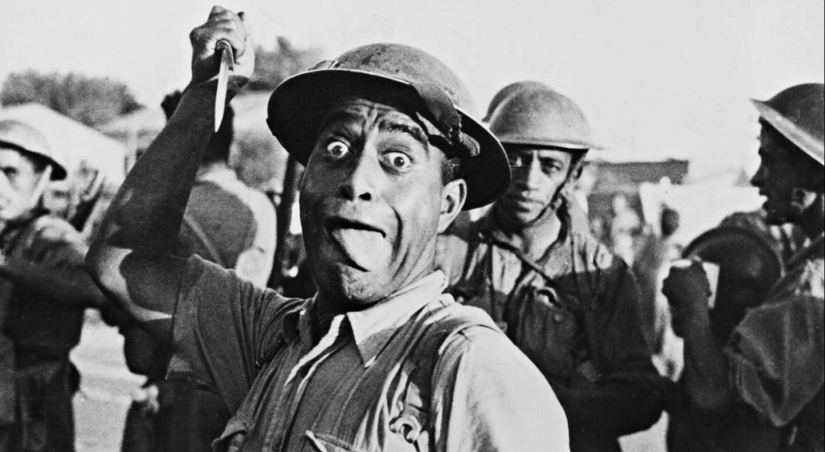 New Zealanders, along with British troops participated in the fighting in North Africa during the Second world war. There, in a training camp in the Egyptian city of Ismailia and held a ceremonial parade in which the Maori performed the Haka for the monarch.
New Zealanders, along with British troops participated in the fighting in North Africa during the Second world war. There, in a training camp in the Egyptian city of Ismailia and held a ceremonial parade in which the Maori performed the Haka for the monarch.
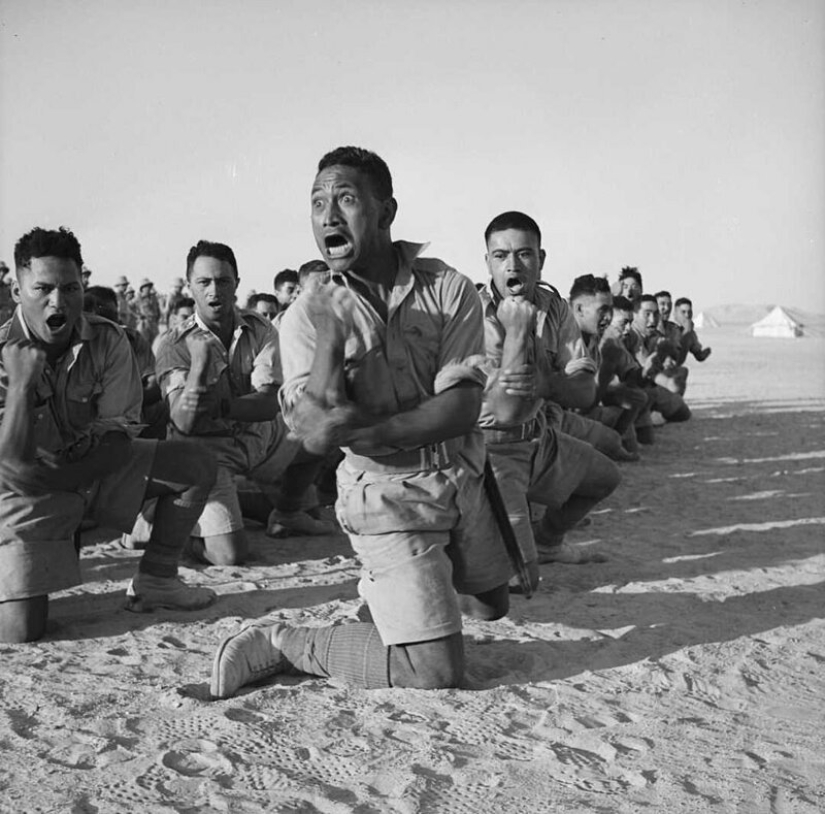
Such a parade Britain has ever seen! In June 1941, the king of Britain George VI with the Queen visited the training camp of the new Zealanders in the Egyptian Helwan, where the troops, which consisted mainly of representatives of the Maori tribe, performed for him the war dance the Haka.

Haq is considered a dance of the soldiers, but the Maori performed it in a variety of cases, including, to welcome the royals.

Long time natives, the Maori never called in the new Zealand army, but in the years of the First world war they were able to become soldiers. At the time of the parade in Helwan Maori still very long served in the ranks of the army.

The purpose of the Haka is, first and foremost, to intimidate the opponent. In some cases, it supersedes the battle. However, this hack is used as a sign of respect and often performed at festivals, funerals and during sports competitions.
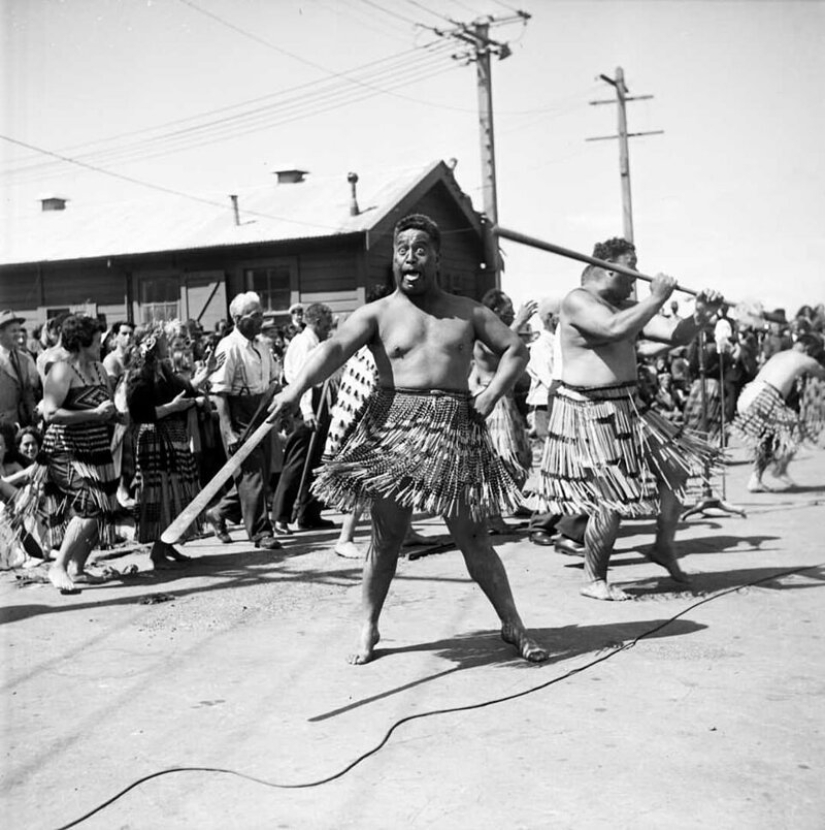
It is known that several soldiers of the Maori fought in the British army during the First world war, but it was just a random exception. Legal right to serve Maori received only after the outbreak of the Second world war, when new Zealand MPs for Maori was able to push through the New Zealand Parliament a bill.
During the Second world war in the new Zealand army served about 3,600 Maori. In addition to North Africa, they fought in Italy and in Greece.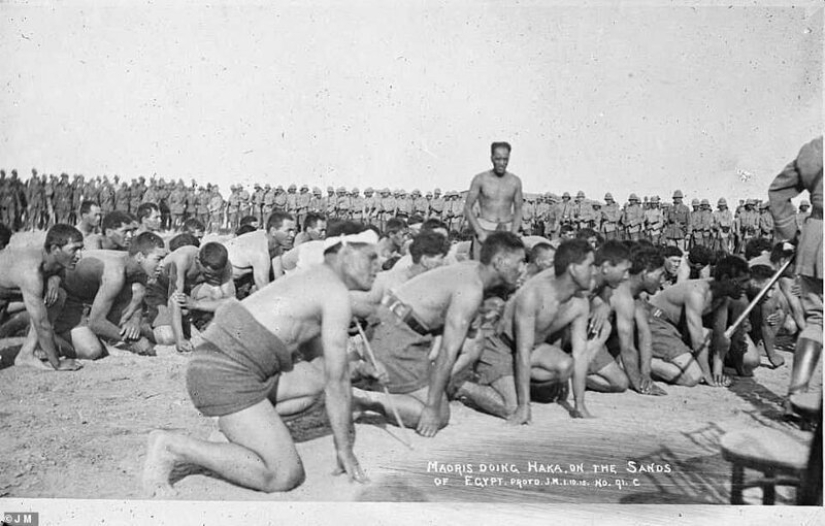
649 Maori were killed in the fighting. Later, the MP-Maori of Apirana Ngata called to serve in the army "price of citizenship", saying that the army is the only opportunity for Maori to force New Zealanders to treat them as equals.
Bias against Maori in the country were very strong, and for many of them, military service was an opportunity to prove themselves.
That is why Apirana Ngata insisted that in parts of the Maori officers were also Maori.
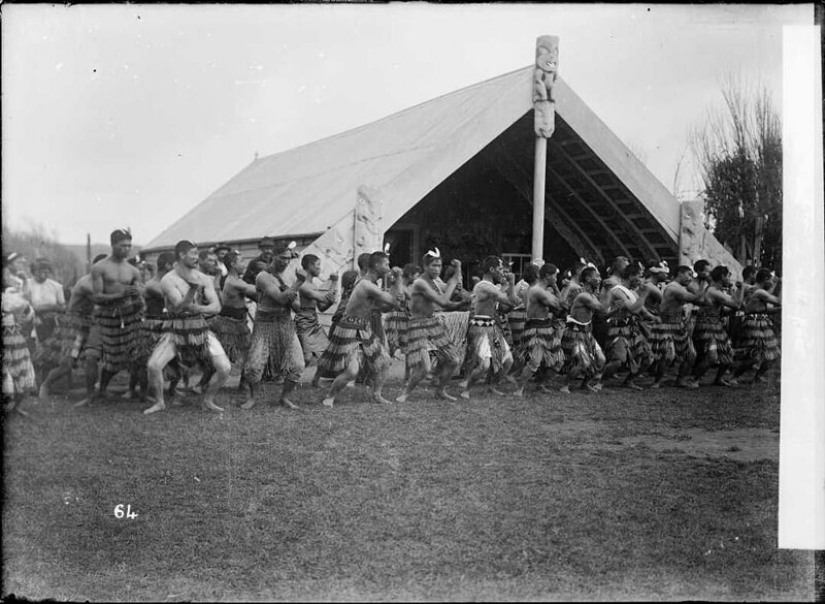
According to legend, the Germans were very afraid of the soldiers-Maori, not only because of their reckless courage, but also due to the fact that as a trophy they cut off the enemies ears, both the dead and the living.
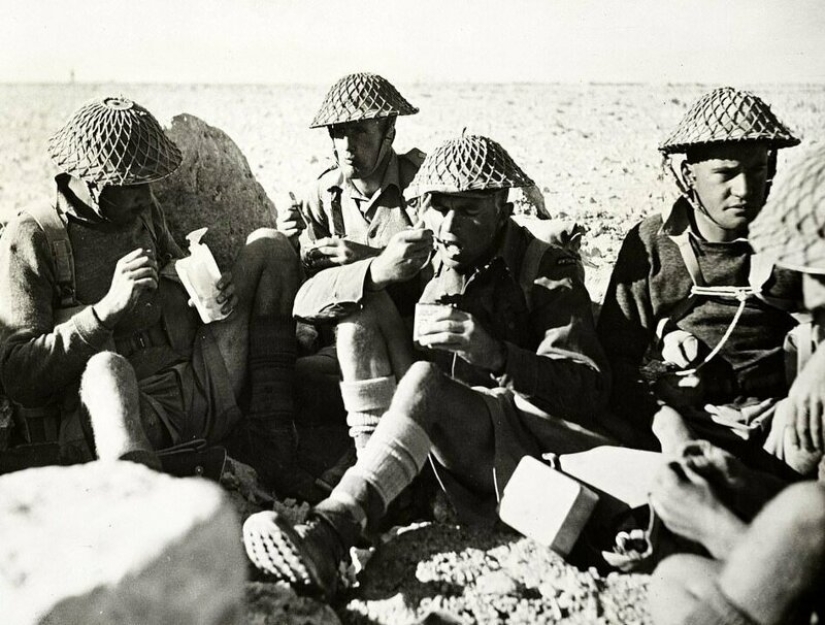
Maori — the indigenous people of New Zealand. They are descendants of Polynesian colonizers, came to the Islands of New Zealand in the XI century. However, after the appearance of the Islands the Europeans and their transition under the British protectorate, the Maori lost almost all their lands were confiscated by the British government.
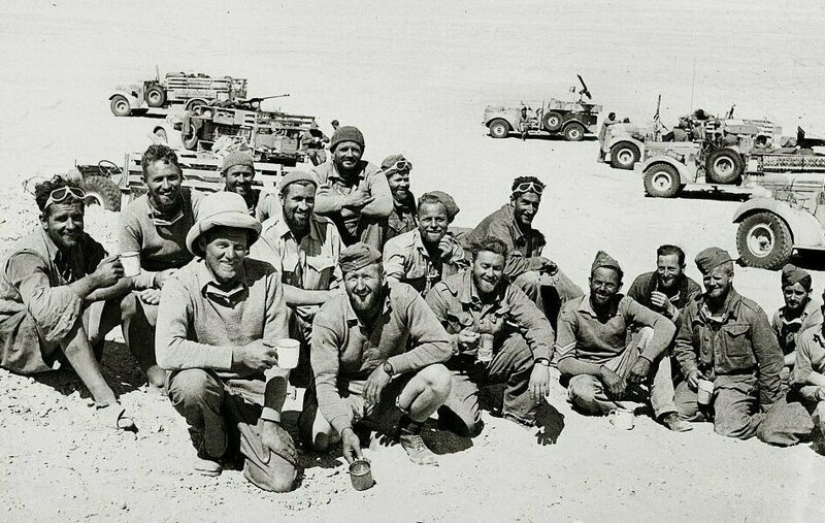
Despite years of disagreements with the British, Maori fought bravely in the ranks of the allies during the Second world war.
Keywords: 40s | Army | Soldier | World war II | Māori
Post News ArticleRecent articles

It seemed to photographer and photo editor Carrie Boretz that New York was always crowded with people who knew nothing more than to ...

It often happens that people who did not plan a feat become heroes. They simply did what they thought was necessary and went ...
Related articles

Many writers, including Nikolai Gogol in his immortal «Taras Bulba» mentioned that Sich women were not allowed. There is ...

In the Islamic world, men reign supreme and their authority is unshakable. Therefore, the Arab chronicles, which describe the ...

When Kaiser Wilhelm learned the story of the captain from Kepenik, he laughed until tears came. He personally pardoned a man who ...

AES+F is one of the most unusual and influential Russian art groups. Formed in the late 1980s, they transcended the boundaries of ...